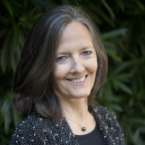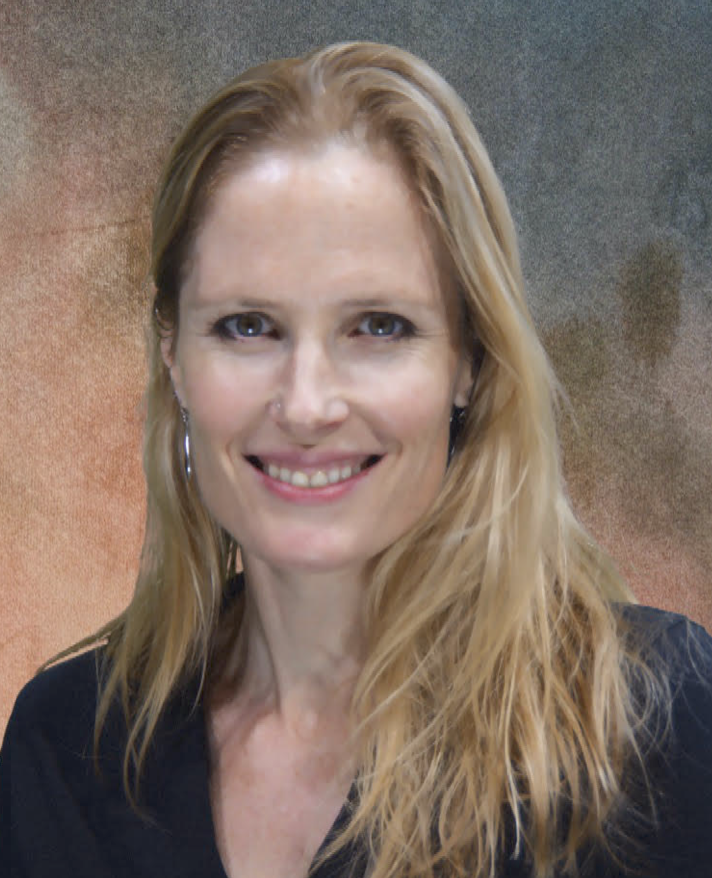Karen Pando-Mars, MFT, Kari Gleiser, PhD, Ben Medley, LCSW
Friday – Monday
October 7, 2022 thru May 15, 2023
12:00 pm – 4:30 pm, Eastern Time USA + Canada
Pre-requisite: Level 1 AEDPers: licensed therapists who have taken AEDP Immersion.
This ES1 counts toward AEDP certification
This AEDP course is open to AEDP Immersion Grads: Licensed Mental Health Providers practicing legally in your state, province, or country, including Counselors, Doctors, Nurses, Psychoanalysts, Psychologists, Psychotherapists, Social Workers, other Behavioral Health Therapists and related professionals. If you have a question about the relevance of this course for you and/or your eligibility for this course please contact admin@aedpinstitute.org with your credentials before registering.
About Essential Skills (ES1): AEDP Essential Skills course will provide practical skills for the application of AEDP as well as a thorough immersion in the theory underlying the practice. Our aim is to teach, in both left-brained and right-brained ways, different types of clinical interventions so that participants will emerge with both an understanding and a felt sense of how to “do” AEDP. Each day’s teaching will include didactic presentations of theory along with video of actual sessions conducted by AEDP Faculty followed by small group experiential exercises.
Routine for each module: AEDP skills are introduced with their theoretical foundations and then with illustrations by way of clinical videotapes; skills are then practiced in group experiential exercises. In online courses, exceptionally effective experiential exercises are held in online “breakout rooms.”
Faculty, Experiential Assistants and Clinical Video: These are the hallmarks of all AEDP trainings. In AEDP, we pride ourselves in how thoroughly and deeply we seek to both undo professional aloneness and engage in rigorous clinical teaching. Our faculty are excellent as academics, clinicians and teachers. Participants deeply appreciate how effectively faculty presenters’ clinical video demonstrates “AEDP in action.” And faculty have skilled accompaniment from a large number of Experiential Assistants – up to and often including one Experiential Assistant for every four participants. Participants rave about the excellent attention and support they receive in this unique learning environment.
To see a listing of AEDP therapists who act as Experiential Assistants, click here.
Course Description
Description: AEDP Essential Skills, aimed at practitioners, will provide practical skills for the application of AEDP. Our aim is to teach, in both left-brained and right-brained ways, skill sets, concrete and specific. Different skill sets will be introduced, explained, illustrated and practiced each week, so that participants will emerge with both an understanding and a felt sense of how to practice AEDP. The basic skill sets necessary to practice AEDP will be introduced each week, with theoretical foundations and with videotapes and group experiential exercises in the afternoon.
In AEDP, we pride ourselves in how thoroughly and deeply we seek to both (i) undo professional aloneness and (ii) engage in rigorous clinical teaching with skilled accompaniment. We are proud to say that our ES courses feature a high number of highly skilled assistants.
What we consider AEDP’s “essential skills” will be didactically demonstrated and experientially explored so that participants develop both a felt sense and a cognitive understanding of them. A key component of the experiential practices is the opportunity to “try on” sets of interventions as a therapist and to receive them as a client. We have found that learning new skills can give rise to experiences of safety, attachment security, transformation, increased therapeutic courage, and related phenomena; precisely the kinds of experiences AEDP facilitates for its clients. Each day course faculty lead small groups in practicing essential AEDP skills. The concentrated time that participants spend together immersed in learning inevitably leads to the development of a culture of trust and generosity that allows for risk-taking and a supportive environment that is uniquely suited
Course Topics
Module 1: Karen Pando-Mars, MFT
HEALING FROM THE GET-GO, UNDOING ALONENESS & THE CLINICAL ROADMAP for AEDP’s TRANSFORMATIONAL JOURNEY
Module 2: Kari Gleiser, PhD
ATTACHMENT & RELATIONAL WORK: UNDOING ALONENESS IN CLINICAL ACTION
Module 3: Karen Pando-Mars, MFT
STATE 1: THE TOP OF THE TRIANGLE of EXPERIENCE WORKING WITH DEFENSE AND ANXIETY
Module 4: Ben Medley, LCSW
STATE 2 WORK: THE PROCESSING of CORE AFFECTIVE EXPERIENCE
Module 5: Karen Pando-Mars, MFT
THE PROCESSING of TRANSFORMATIONAL EXPERIENCE & THE INTEGRATION OF TRANSFORMATION INTO SELF STATE 3 & STATE 4 Work
Course Objectives
- Demonstrate an AEDP therapist stance: welcome, affirm, validate, orient
- Construct safety and undo aloneness
- Apply moment-to-moment tracking to clinical practice
- Construct dyadic safety and connection
- Build and rebuild a secure attachment
- Integrate healing and transformance from the get-go
- Classify different aspects within the Triangle of Experience, including both verbal and somatic processes, to optimize attunement and accelerate the healing process
- Analyze the 4 State Transformational Process: Working with relational trauma in a first session
- Integrate Meta-therapeutic processing and transformational processes
- Relate the experience of emotional experience: processing emotions to completion
- Define attachment styles and utilize different interventions according to attachment style
- Utilize various ways to regulate anxiety, bypass defenses and other inhibitory forces which block progress in therapy
- Describe how to regulate/alleviate anxiety and traces of shame
- Identify and access core affective experiences
- Identify expressions of transformance in clients
- Practice utilizing transformance strivings as a catalyst to maximize patient’s healing
Location, Dates & Times
Please check these dates and times closely for conflicts with Local Holidays, Religious Holidays, etc.
Location: Live Online and highly interactive
AEDP’s Live, Online Learning: Requirements & FAQ’s
Dates:
Friday – Monday
2022: October 7 – 10, December 2 – 5
2023: January 20 – 23, March 24 – 27, May 12 – 15
Times: Daily
12:00 p.m. – 4:30 p.m. Time Eastern time USA + Canada
Please double check the meeting times for your local time zone if not Eastern Time USA + Canada
Registration, Course Fees and Scholarships
To attend you must be a Level 1 AEDP licensed therapist who has taken AEDP Immersion
- $3,200 USD Non-Member Course Fee
Payment plan: $500 due at registration – Call Karen Newell 866-992-9399
Are you a Member? Log in to get your Member discount
Register Here!Scholarships:
Scholarships
Scholarship are filled, we are no longer accepting applications.
Meet the Presenters

Karen Pando-Mars, MFT
Karen Pando-Mars, MFT, is a psychotherapist in San Rafael, California, and Senior Faculty of the AEDP Institute. She was irresistibly drawn to AEDP in 2005 and captivated by the depth and breadth of this transformational model. She immersed herself in training and consultation with Dr. Fosha and three years of core training with Dr. Frederick. Ms. Pando-Mars is one of the founders of AEDP West and chaired the AEDP Institute Education Committee from 2011-2018. Since 2020, Ms. Pando-Mars is a member of the AEDP DBEI (Diversity, Belonging, Equity and Inclusion Committee). Ms. Pando-Mars’ passionate interest in what cultivates deep connection between Self and Other has been furthered by attachment theory and related neuroscience. She is known for her presence, warmth, and the clarity of her presentations. Videotapes of her clinical work are moving and inspiring examples of how AEDP explicit relational and experiential practices can help patients heal from relational trauma. (Read More…)
Kari Gleiser, PhD
Kari Gleiser, PhD, completed her doctoral work at Boston University and her internship through Dartmouth Medical School with a focus on trauma and PTSD. In her practice, she specializes in applying AEDP to the treatment of complex trauma and dissociative disorders. Dr. Gleiser is the co-founder/co-director of the Center for Integrative Health in Hanover, NH, a trauma center dedicated to multi-modal healing of mind, body and spirit. Dr. Gleiser has co-developed an “intra-relational” model of therapy that imports AEDP’s relational and experiential interventions to patients’ internal systems of dissociated self-states. Dr. Gleiser has written several clinical papers and book chapters and has presented at international conferences. She also explores the intersection of psychotherapy and spirituality, as well as the emerging field of psychedelic-assisted psychotherapy.
Posts not found
More Information
Instructional Methodology: AEDP skills are introduced with their theoretical foundations and then with illustrations by way of clinical videotapes; skills are then practiced in group experiential exercises. In online courses, exceptionally effective experiential exercises are held in online “breakout rooms.”
Faculty, Experiential Assistants and Clinical Video: These are the hallmarks of all AEDP trainings. In AEDP, we pride ourselves in how thoroughly and deeply we seek to both undo professional aloneness and engage in rigorous clinical teaching. Our faculty are excellent as academics, clinicians and teachers. Participants deeply appreciate how effectively faculty presenters’ clinical video demonstrates “AEDP in action.” And faculty have skilled accompaniment from a large number of Experiential Assistants – up to and often including one Experiential Assistant for every three participants. Participants rave about the excellent attention and support they receive in this unique learning environment.
To see a listing of AEDP therapists who act as Experiential Assistants, click here.
Disability Access: If you require ADA accommodations please contact our office 30 days Or more before the event. We cannot ensure accommodations without adequate prior notification
Certification: Completion of this course does not guarantee certification. To be eligible for AEDP Certification, clinicians must demonstrate an understanding of the theoretical model and proficiency in applying AEDP interventions to diverse clinical populations, and an overall commitment to the AEDP mission, ethos and values. Certification requirements.
Attendance and Makeup Policy & Refunds:
Questions:
Course and all customer service related questions:
Please contact Customer Service Administrator
Marilia Rodriguez
admin@aedpinstitute.org
813-553-1294
